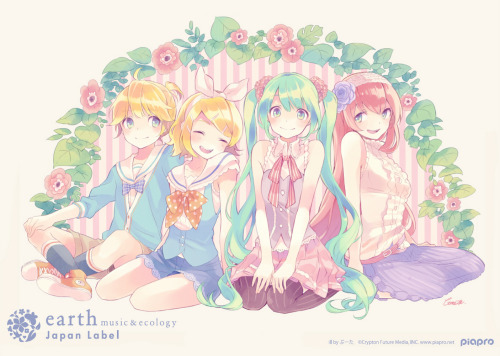夢と葉桜 ♥
Lesson 5 [That is my umbrella] 

 posted at: Wednesday, 20 November 2013 | 21:08 | 0 Love! | Give me some love?
posted at: Wednesday, 20 November 2013 | 21:08 | 0 Love! | Give me some love? 
*Note : Translation is below.
(1) a : Are wa Honda-san no hon desu ka.
b : Iie, Honda-san no hon dewa arimasen.
(2) a : Kore wa Ken-san no desu ka.
b : Iie, ken-san no dewa arimasen.
(3) a : Sore wa dare no desu ka.
b : Kore wa Miyazawa-san no desu.
(4) a : Anata no kasa wa dore desu ka.
b : Watashi no kasa wa sore desu.
(5) a : Honda-sensei no jisho wa dore desu ka.
b : Honda-sensei no jisho wa kore desu.
(6) a : Kore wa nan no hon desu ka.
b : Sore wa ryori no hon desu.
(7) a : Nihon-go no shinbun wa dore desu ka.
b : Kore desu.
(8) a : Sore wa doko no kuruma desu ka.
b : Kore wa Amerika no kuruma desu.
Translation
(1) a : Is that one over there Mr. Honda's book ?
b : No, ( that one over there ) is not Mr. Honda's book.
(2) a : Is this Mr. Ken's ?
b : No, ( that ) is not Mr. Ken's.
(3) a : Whose is that ?
b : This is Mr. Miyazawa's.
(4) a : Which is your umbrella ?
b : My umbrella is this ( one ).
(5) a : Which is Mr. Honda's Dictionary ?
b : Mr. Honda's dictionary is this ( one ).
(6) a : What kind of book is this ?
b : This is a book on cooking.
(7) a : Which is Japanese newspaper ?
b : This is.
(8) a : Where is this car from ?
b : This is an American car.
Vocabulary
dore ( which )
kasa ( umbrella )
ryori ( cooking, cuisine )
kuruma ( car, vehicle )
Structure
(1) [ no ]
Watashi no --> my / mine
Watashi no hon --> my book
Kore wa watashi no hon desu. ( This is my book. )
Kono hon wa watshi no desu. ( This book is mine. )
When "no" is placed between two nouns, it carries many meanings including the meaning of possession.
Below are some of the examples :
1. Watashi no jisho ( My dicionary )
2. Ie no mado ( The window of the house )
3. Nihon no jidosha ( The car made in Japan )
4. AAA no Mita-san ( Mr.Mita from AAA) [ AAA --> company name ]
5. Nihon-go no hon ( A book written in Japanese Language )
6. Nihon-go no hon ( A book about Japanese Language )
7. Kuruma no kojo ( A car factory )
8. Gakko no sensei ( A school teacher )
9. Ei-go no jugyo ( An English lesson )
10. Kawa no beruto ( A leather belt )
11. Onna no sensei ( A female teacher )
12. Go-sai no kodomo ( A 5-year old children )
13. Kon-iro no kaban ( A navy blue bag )
14. Kino no ban ( Yesterday evening )
15. Daigaku no chikaku ( Near the university )
16. Naifu no tsukai-kata ( The wa of using a knife )
(2) [ dare no ]
a : Kore wa dare no hon desu ka. ( Whose book is that ? )
b : Sore wa watshi no hon desu. ( That is my book. )
(3) [ nan no ]
a : Kore wa nan no hon desu ka. ( What kind of book is this ? )
b : Sore wa kuruma no hon desu. ( That is a book on cars. )
(4) [ doko no ]
a : Kore wa doko no kuruma desu ka. ( Where is this car from ? )
b : Sore wa Amerika no kuruma desu. ( That is an American car. )
(5) [ dore ]
a : Anata no pen wa dore desu ka. ( Which is your pen ? )
b : Watashi no pen wa kore desu. ( My pen is this one. )
(6) [ sensei ]
'sensei' basically means teacher, but it is also used to call or put behind the names of people who are professionals like doctors, accountants, lawyers and politicians.
Exercise for lesson 5 will be in "Learning Japanese with me" facebook page, arigato to gambate ne?! (Thanks and goodluck, kay ?! )
(1) a : Are wa Honda-san no hon desu ka.
b : Iie, Honda-san no hon dewa arimasen.
(2) a : Kore wa Ken-san no desu ka.
b : Iie, ken-san no dewa arimasen.
(3) a : Sore wa dare no desu ka.
b : Kore wa Miyazawa-san no desu.
(4) a : Anata no kasa wa dore desu ka.
b : Watashi no kasa wa sore desu.
(5) a : Honda-sensei no jisho wa dore desu ka.
b : Honda-sensei no jisho wa kore desu.
(6) a : Kore wa nan no hon desu ka.
b : Sore wa ryori no hon desu.
(7) a : Nihon-go no shinbun wa dore desu ka.
b : Kore desu.
(8) a : Sore wa doko no kuruma desu ka.
b : Kore wa Amerika no kuruma desu.
Translation
(1) a : Is that one over there Mr. Honda's book ?
b : No, ( that one over there ) is not Mr. Honda's book.
(2) a : Is this Mr. Ken's ?
b : No, ( that ) is not Mr. Ken's.
(3) a : Whose is that ?
b : This is Mr. Miyazawa's.
(4) a : Which is your umbrella ?
b : My umbrella is this ( one ).
(5) a : Which is Mr. Honda's Dictionary ?
b : Mr. Honda's dictionary is this ( one ).
(6) a : What kind of book is this ?
b : This is a book on cooking.
(7) a : Which is Japanese newspaper ?
b : This is.
(8) a : Where is this car from ?
b : This is an American car.
Vocabulary
dore ( which )
kasa ( umbrella )
ryori ( cooking, cuisine )
kuruma ( car, vehicle )
Structure
(1) [ no ]
Watashi no --> my / mine
Watashi no hon --> my book
Kore wa watashi no hon desu. ( This is my book. )
Kono hon wa watshi no desu. ( This book is mine. )
When "no" is placed between two nouns, it carries many meanings including the meaning of possession.
Below are some of the examples :
1. Watashi no jisho ( My dicionary )
2. Ie no mado ( The window of the house )
3. Nihon no jidosha ( The car made in Japan )
4. AAA no Mita-san ( Mr.Mita from AAA) [ AAA --> company name ]
5. Nihon-go no hon ( A book written in Japanese Language )
6. Nihon-go no hon ( A book about Japanese Language )
7. Kuruma no kojo ( A car factory )
8. Gakko no sensei ( A school teacher )
9. Ei-go no jugyo ( An English lesson )
10. Kawa no beruto ( A leather belt )
11. Onna no sensei ( A female teacher )
12. Go-sai no kodomo ( A 5-year old children )
13. Kon-iro no kaban ( A navy blue bag )
14. Kino no ban ( Yesterday evening )
15. Daigaku no chikaku ( Near the university )
16. Naifu no tsukai-kata ( The wa of using a knife )
(2) [ dare no ]
a : Kore wa dare no hon desu ka. ( Whose book is that ? )
b : Sore wa watshi no hon desu. ( That is my book. )
(3) [ nan no ]
a : Kore wa nan no hon desu ka. ( What kind of book is this ? )
b : Sore wa kuruma no hon desu. ( That is a book on cars. )
(4) [ doko no ]
a : Kore wa doko no kuruma desu ka. ( Where is this car from ? )
b : Sore wa Amerika no kuruma desu. ( That is an American car. )
(5) [ dore ]
a : Anata no pen wa dore desu ka. ( Which is your pen ? )
b : Watashi no pen wa kore desu. ( My pen is this one. )
(6) [ sensei ]
'sensei' basically means teacher, but it is also used to call or put behind the names of people who are professionals like doctors, accountants, lawyers and politicians.
Exercise for lesson 5 will be in "Learning Japanese with me" facebook page, arigato to gambate ne?! (Thanks and goodluck, kay ?! )



 : See you soon...!
: See you soon...! Skin by;
Skin by; 


 Replace Your Profile ! :D
Replace Your Profile ! :D

0 Comments:
Post a Comment
Back to the Blog?